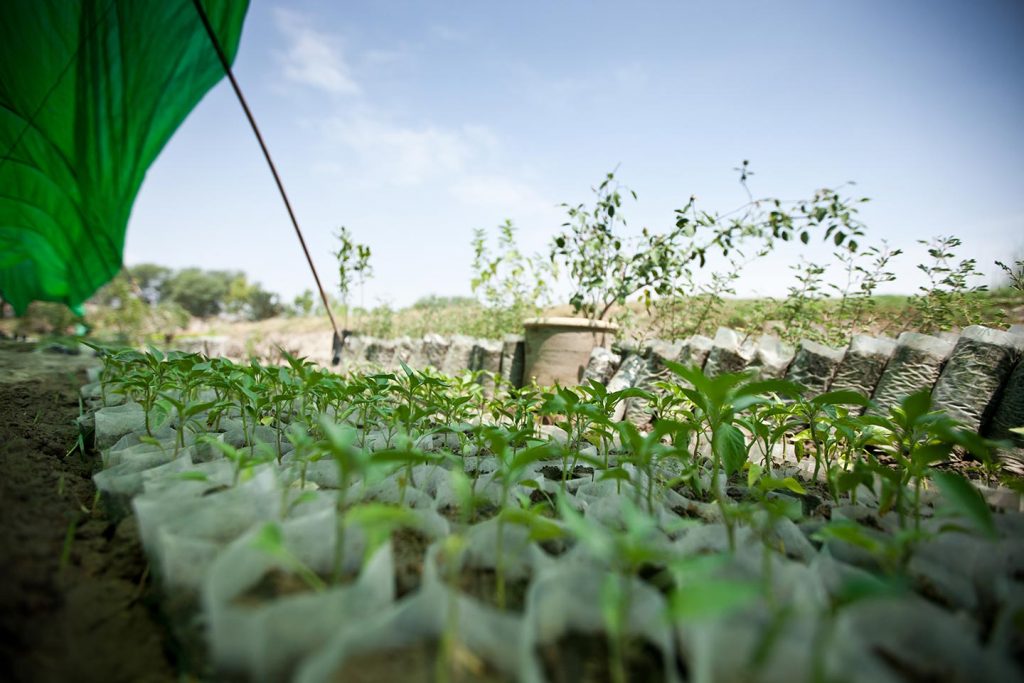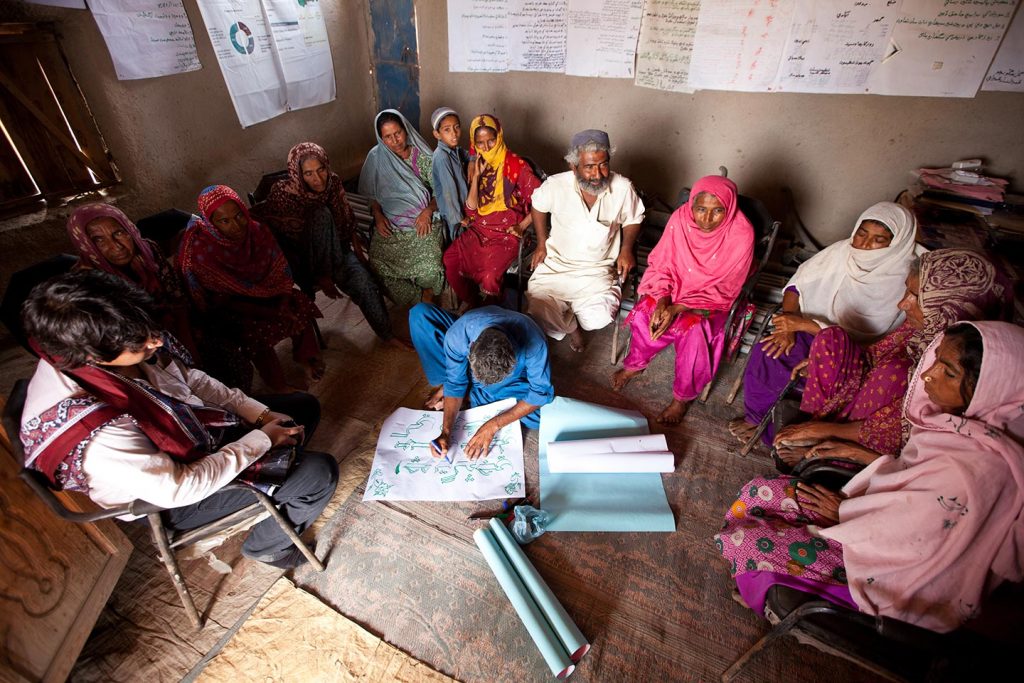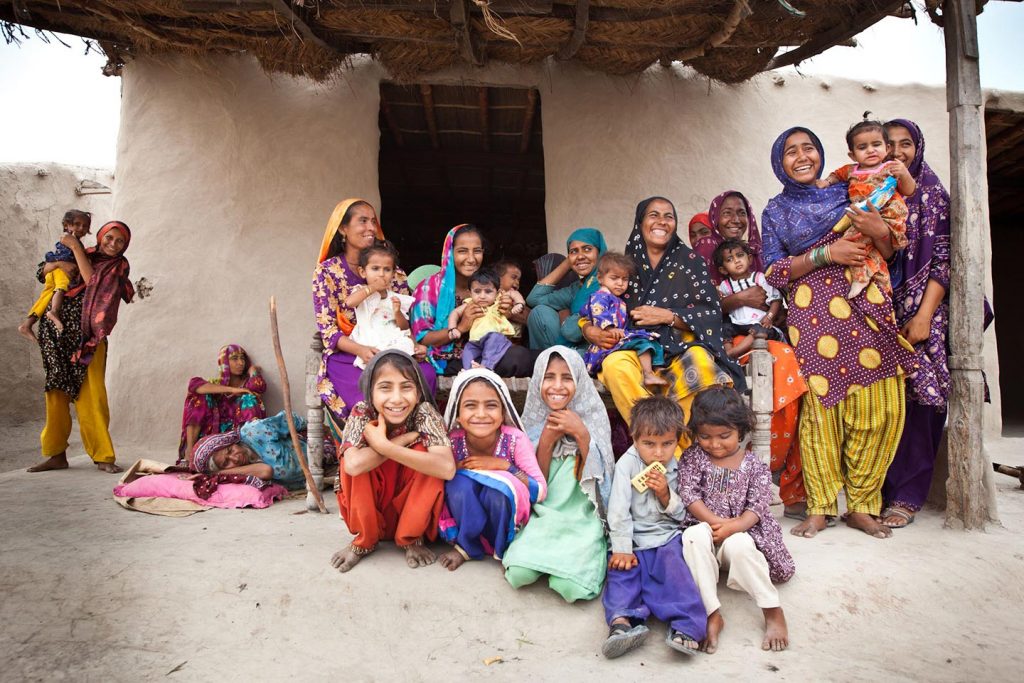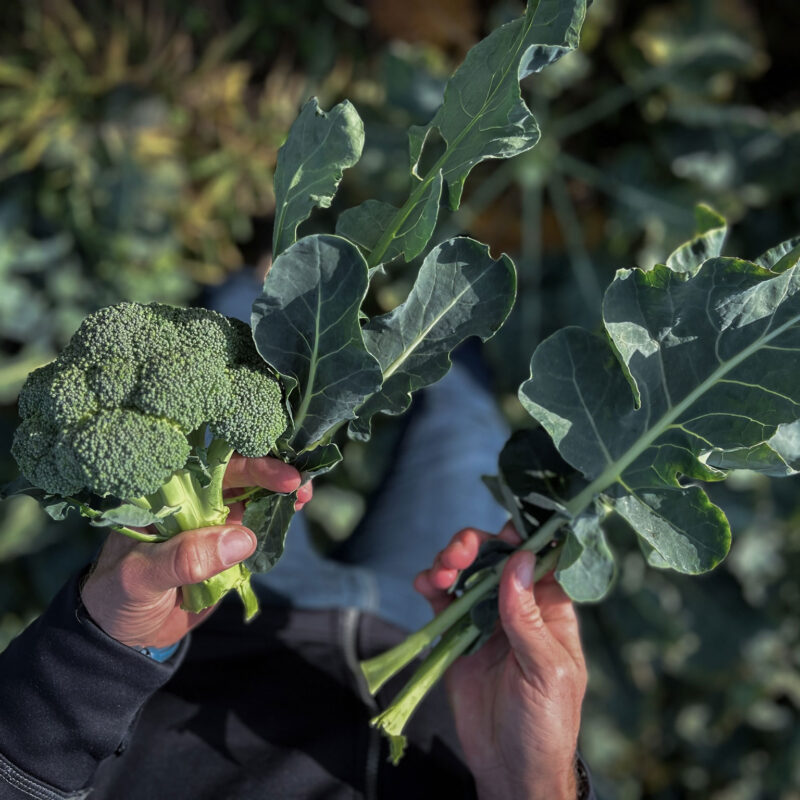Sustainable Rice Production in Pakistan – A Replicable Model
Rice is one of the most widely consumed grains in the world, but it is also connected to major social and environmental challenges. When basmati rice from Punjab sailed up as a high-risk crop in 2015, Axfoundation got engaged: What can value chain actors do together to contribute to sustainable rice production while improving the livelihood of farmers and seasonal workers? This led to a long-term public-private funded partnership where Axfoundation collaborated with actors throughout the value chain. As a result, the Garant brand’s basmati rice is now certified by the Sustainable Rice Platform, with better cultivation conditions and decreased environmental impact. Furthermore, a formula has been piloted that can be used in multiple value chains, turning aid into sustainable trade.

Agriculture is the mainstay of Pakistan's economy.
The Issue
The agricultural sector in Pakistan is unregulated and working conditions are harsh. Particularly vulnerable are women, who get paid less than men and often lack influence in decision-making. Climate change has led to harvests failing and groundwater levels diminishing. In 2015, basmati rice from the Punjab region came out as one of the major risk products in Axfood’s human rights risk analysis. To get a better understanding of the situation for small-scale rice farmers in the region, Oxfam was assigned to do a poverty study, and soon after Axfoundation was approached.
Our Solution
Together with implementing partner Oxfam Sweden and several supply chain actors, the Sustainable Rice Production project was initiated. The ambition was to strengthen women’s influence, improve working conditions and develop sustainable cultivation methods while minimizing business risks and improving farmers’ incomes. The project set out to make certified basmati rice more accessible to consumers.

Participants take part in the SRP training.
It has been a great experience to witness how women have been empowered through this project.
– Viveka Risberg, Project Manager Sustainable Rice Production in Pakistan, Axfoundation

Participating women were economically and politically strengthened.
In order to strengthen farmers’ and workers’ rights, the Sustainable Rice Production project assisted in the development of 25 new farmer organizations, where more than half of the participants were women. This enabled the initiative to focus on women’s role and rights in rice cultivation. Throughout the project, the rice exporters and the farmers built direct relationships which eliminated the use of expensive middlemen and strengthened the farmers’ livelihoods. The Rice Research Institute and the Agricultural University in Faisalabad also contributed by assisting with training, education, and research inputs.
The project included political advocacy via Multi Stakeholder Platforms. Through these, quarterly meetings were held in Pakistan where rice farmers were given the opportunity to discuss social, economic, and environmental challenges with politicians and authorities at a local and national level.
Our Work
Axfoundation’s role in the project included developing, testing and sharing a model aimed at strengthening farmers’ organizations. Our goal was also to spread knowledge about a sustainable standard for rice cultivation; The Sustainable Rice Platform.
Results
The project is a good example of how actors in the value chain together can invest in capacity-building initiatives at the primary production level where smallholders and workers lack influence and negotiating power. It has proven to be a successful model that shows how a public-private partnership with collaborations throughout the value chain can lead to long-term results. The project has paved the way for a certified sustainable basmati rice for consumers – and piloted a formula to replace aid with sustainable trade.
Strengthened women’s influence
Small-scale farmers and seasonal workers in Pakistan have participated in training and engaged with experts, researchers, exporters, and civil society organizations throughout the project. One significant outcome of the project is the active role that women have played in the project. In the 25 farmer organizations that were created, over half of the members were women. Women also held around 50% of the leading roles – an important leap forward in the work of strengthening women’s roles and rights in rice cultivation.
Sustainable rice production methods and higher wages
2,500 farmers and workers in Pakistan were trained in line with a certification standard for rice, the Sustainable Rice Platform, SRP.
By following the SRP standard, sustainable cultivation methods have been implemented leading to increased productivity, better working conditions, and higher incomes for farmers and workers. The project has also enabled farmers to gain direct access to exporters without middlemen and provided regular meetings between farmers and local decision-makers.
Lower climate impact
The innovative resource-saving SRP model resulted in farmers saving 30% on production costs and increased productivity by 15%. The cultivation methods also resulted in 30% reduced use of water and 15% reduced CO₂e-emissions.
After the project came to a close in 2022, the farmers and the exporters still maintain their relationship with the goal of producing and selling SRP-certified rice. At the end of 2022, farmers of the project had almost reached the certification level of SRP. The last pull would be an increased demand for SRP-verified rice among Swedish retailers and consumers. The more demand, the more supply, leading to both social and environmental gains in the rice sector.
SRP-certified rice is becoming more available in food stores around Europe. Axfoundation wants to keep spreading SRP in the Swedish market so that more actors than Axfood demand sustainably produced rice.
– Viveka Risberg, Project Manager Sustainable Rice Production in Pakistan, Axfoundation
Premium price mechanism in pilot scale
Throughout the Sustainable Rice Production project, a Premium Price Mechanism pilot was implemented. This was a significant contribution to cover farmers’ costs for seeds, fertilizers and watering. The pilot has showed that flexible premiums can have positive impacts on farmers’ livelihoods and be an effective way to minimize the gap between actual income levels and the income levels needed for a sufficient living standard. However, the pilot project also showed that these kinds of price interventions are challenging. The current food system is designed to deliver cheap food for consumers rather than a living income for farmers. For sustainable change, there is a need for transformed purchasing practices taking this factor into account.
SRP-certified rice in stores
In June 2023, Axfood launched SRP-certified rice on the Swedish market, with six different rice items that meet the requirements of the SRP label. This means that Swedish consumers can now buy rice that contributes to higher incomes and better working conditions for farmers, as well as decreased climate impact and the empowerment of female workers.
It is hoped that this concrete result will give rise to more rice products with the same label, and also inspire other products produced sustainably according to the project’s replicable model.
0
farmers trained in sustainable rice cultivation according to the Sustainable Rice Platform standard
0
grower organizations formed in Pakistan with 2,500 farmers
0
percent of the leading positions were held by women
0
percent reduced water usage in rice cultivation
0
percent reduced CO₂e-emissions
0
percent increased productivity
0
demonstration plots established to train farmers in direct seeding for rice, a resource-saving technology
0
stitching units established to increase women's income off season
Partners
The Sustainable Rice Production Project in Pakistan has been a part of the regional program Gender Transformative and Responsible Agribusiness in Southeast Asia (GRAISEA) funded by the Swedish International Development Cooperation Agency (SIDA).
Oxfam International has been the implementing partner through its office in Islamabad. Association for Gender Awareness & Human Empowerment, AGAHE, has been the local operating partner in Punjab.
Co-founders and partners have been grocery retailer Axfood/Dagab, Norwegian food wholesaler Unil (Norgesgruppen), Axfoundation, supplier Rol-Ryz, rice exporters Rice Partners Ltd (RPL), Matco, Galaxy and Atlas in Pakistan. Several actors in Pakistan have also been actively involved, among them the Rice Research Institute, and the University of Agriculture in Faisalabad.

























































